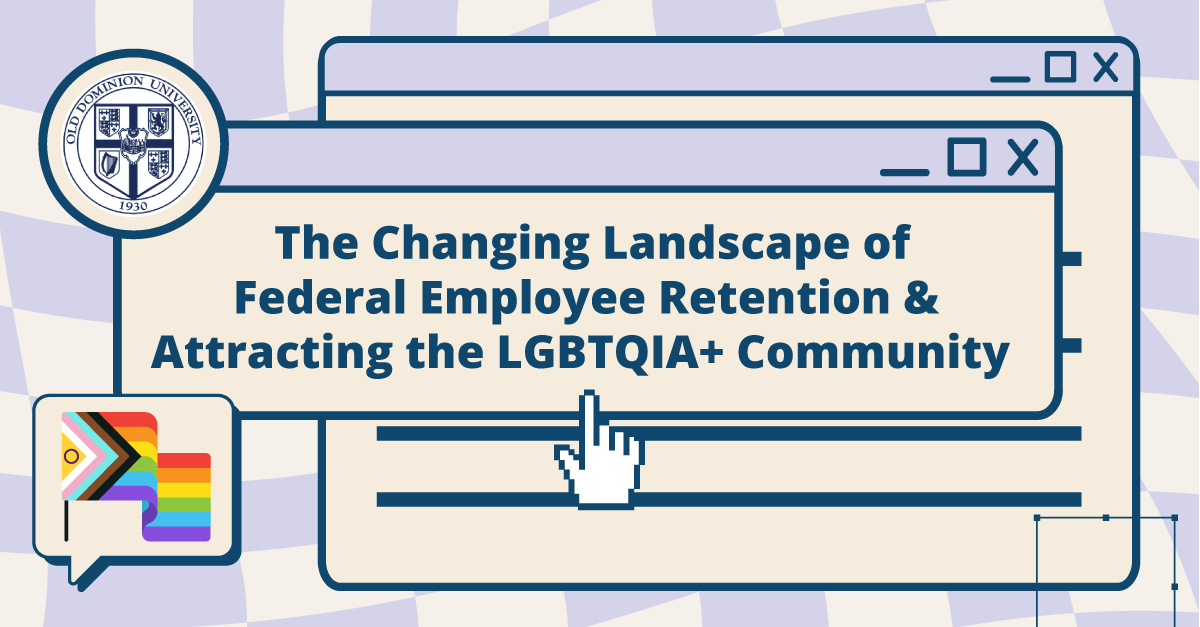University Research into Marginalized Workforces and Federal Employee Retention
6 MIN READ

The Changing Landscape of Federal Employee Retention and Attracting the LGBTQIA+ Community
The United States Federal Government is one of the largest employers in the world. With that status, it is imperative, as a government contractor, to understand the nuances of hiring and retaining top talent. This includes seeking talented individuals throughout their career lifespan that differ in the intersectionality of socioeconomic status, race, and identity.
MetroStar, a leading digital information technology (IT) services and solutions provider and consulting agency, understands the importance of making the federal government a more desirable and accessible employer or client. Additionally, accessibility, diversity, equity, and inclusion are core principles of our company's values.
As federal agencies and government contractors navigate the ever-changing expectations, needs, and perceptions of the industry, there is a timely need to understand how to attract the next generation of public servants and how to be more inviting to historically marginalized groups such as the LGBTQIA+ community. Through research, together, we can paint a picture of what the desired workforce environment looks like from intersectional perspectives.
Employment Retention Research and Partnership with ODU Graduate Students
MetroStar partnered with Old Dominion University's (ODU) Department of Communication & Theatre Arts' Lifespan & Digital Communication graduate program (LSDC) on a mixed-methods study, gaining niche information on the needs, motivations, and perceptions of the LGBTQIA+ community and working within the federal sector.
ODU Professor of Communication & Theatre Arts Tom Socha and his team of graduate students conducted surveys and individual interviews with the target population, gaining knowledge of their experiences, professional goals, and employment needs.
During the Spring 2022 semester, students provided expertise in:
Research Design
-
The university developed tools for data collection, participant recruitment, and screening that reflected the objectives of activities agreed upon between both parties. The university established academic research protocols that adhered to accepted standards for academic rigor (e.g., no plagiarism, a focus on ethical human subject research, etc.).
Research Execution
-
The university recruited participants and executed the study using a combination of tools (e.g., surveys, interviews, literature reviews) and analyzed the data to provide actionable recommendations. Due to scope limitations, the study reflects insights from a convenience sample rather than a nationally representative sample.
Results of the study showed a complex and mixed picture of the communities' thoughts and opinions on working for the Federal Government. Among the findings, identity differences such as language use, personal values, and socioeconomic status played a key role in the participants' answers. Graduate students found that each participant often had conflicting feelings and emotions, thus showcasing the multitudes of the community and the nuances involved when seeking to understand what motivates individuals to apply and retain their roles in certain industries.
Please contact us to learn more about this research study and the work done between ODU and MetroStar.
Importance of Corporate Partnerships with Universities
Socha and his students were eager to develop a study that pushed the students outside of their comfort zone.
"The course wasn't what they were expecting. They had more control on the direction they wanted to go with the project topic than they thought," said Socha. "Half the class didn't know people who fell into the community we were seeking to gain information from during the study. It forced them to go outside of their comfort zones and find new ways of researching to find people who fit their interview criteria."
Socha noted how each student had varying career goals but that they came together—from different communities and backgrounds—to create a research study that was thoughtfully crafted.
The information derived from the study is set to aid MetroStar in future decisions, but a key goal of the partnership was to engage with students and create an environment where they could learn and have real-world experiences.
"It's important to make connections with graduate students who are eager to learn," said Socha. "Our primary goal is student enrichment and doing valuable research. With MetroStar's partnership, we got a fantastic report that we love but more importantly, one that is beneficial to our students' growth."
The research team successfully completed their study and provided information to MetroStar with the goal that their data would impact future processes at the company.
"We are thrilled with the insights provided by ODU and the team of student researchers. Our goal with every University Partnership is to provide real-world enriching experiences for students. However, this partnership went above and beyond by providing MetroStar with actionable insights that will help us continue recruiting and retaining a diverse workforce," Anne McCombe, MetroStar's Director of Corporate Affairs, said.
About MetroStar
MetroStar is a leading digital and IT services provider for the public sector. For over two decades, our people have powered innovation by maintaining an unwavering commitment to putting people at the center of every solution. MetroStar's focus on people and technology supports federal missions, including helping farmers feed America, ensuring humanitarian aid reaches refugees, and transforming the way data is disseminated for the Nation's leading data provider. Learn more about opportunities for designers, developers, writers, and philosophers to build a career with MetroStar, or read more about MetroStar's services and solutions.
Learn more about university partnerships at MetroStar.

Written By:
Rachel Teter
Content Writer
you might like these too
Veteran Shines Again as a Finalist in the 2024 Pinnacle Awards
Career Growth | Management | Awards | Making an Impact
Director of National Security Named Finalist in WashingtonExec Pinnacle Awards
Career Growth | Awards | Making an Impact
A Career in National Security: Zimmerman's Vision for the Future
Career Growth | Management | Making an Impact
want to stay in the loop?
Never miss a thing by signing up for our newsletter. We periodically send out important news, blogs, and other announcements. Don’t worry, we promise not to spam you.

